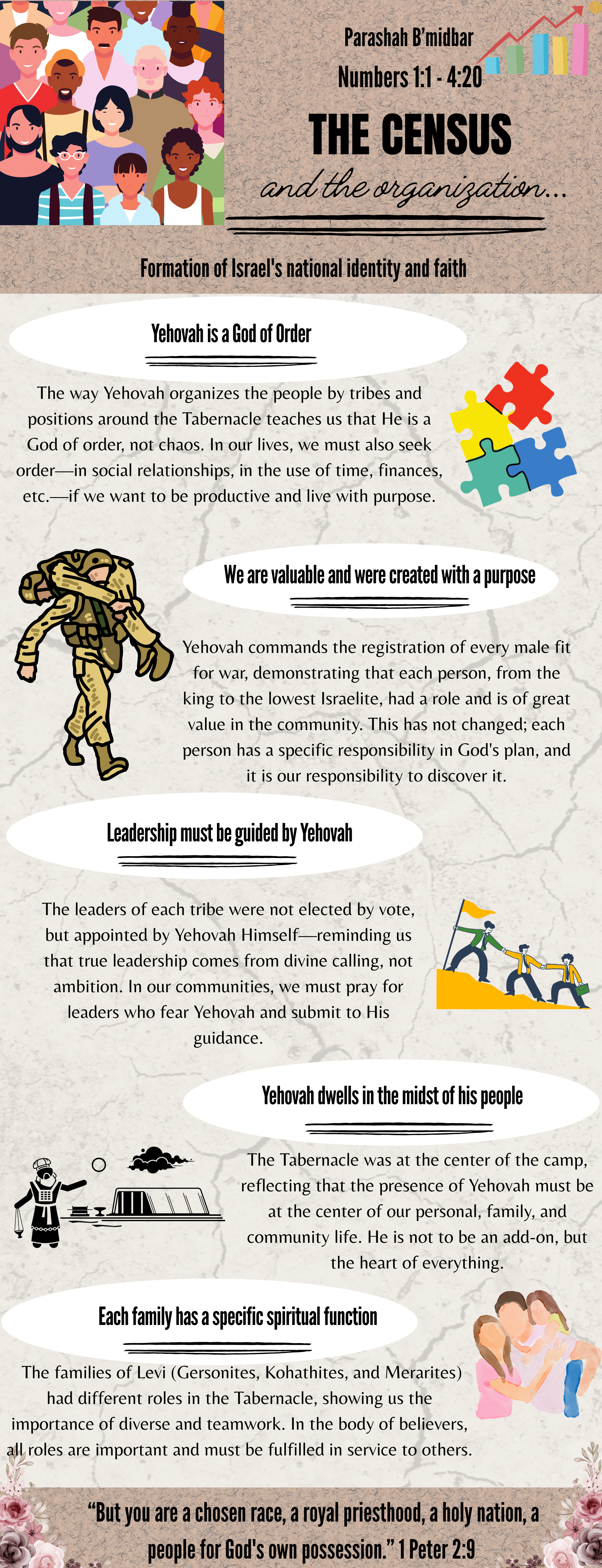Parashah B'midbar
Numbers 1:1 – 4:20
The parashah Bamidbar, found in Numbers 1:1–4:20, recounts the preparations and organization of the people of Israel in the Sinai desert during the second year after their departure from Egypt. This section begins with a detailed census of males over the age of twenty who are fit for military service and organized according to their tribes and clans.
It also describes how the tribes are to camp and march around the Tabernacle, with specific instructions for the Levites, who are responsible for transporting and caring for the Tabernacle and its sacred utensils. The census and organization seek to establish order and structure in the Israelite community as they prepare to move forward toward the Promised Land.
All of this occurs at a crucial moment in the history of the children of Israel, as they are in transition from slavery in Egypt to establishing themselves as a free nation in the Promised Land. Having received the Torah on Mount Sinai, the children of Israel must now learn to live and function as an organized community under the guidance of Yehovah. Both the census and the organization described in these chapters were essential steps in the formation of national identity and faith, ensuring that each member of the community had a defined role in the functioning of the nation and in the development of the worship of God.

Our portion mentions an interesting aspect of the tribe of Levi: it was not counted along with the other tribes in the military census. This was because the Levites were assigned sacred tasks related to the Tabernacle, highlighting their unique and different role within the Hebrew community. This distinction underscores the importance of ministerial service in the people of Israel, indicating that while defense and tribal structure are crucial, connection with the Most High and maintenance of the sanctuary are also crucial. Furthermore, this emphasis on the Levites highlights the idea that each group and each individual has a specific and valuable role within the congregation.
Reflection: The Levites acted as intermediaries between Yehovah and the people of Israel by teaching the Torah, performing rituals and sacrifices, and maintaining service in the Tabernacle. In the same way, we see Yeshua’s role as mediator between Yehovah and His people. Yeshua, as the eternal High Priest according to the order of Melchizedek, offered himself as the perfect sacrifice. His life, death, and resurrection establish a new and eternal connection with the Most High, thus facilitating the forgiveness of sins and reconciliation, and fulfilling the mediating role of the Levites by providing direct and permanent access to the Father.